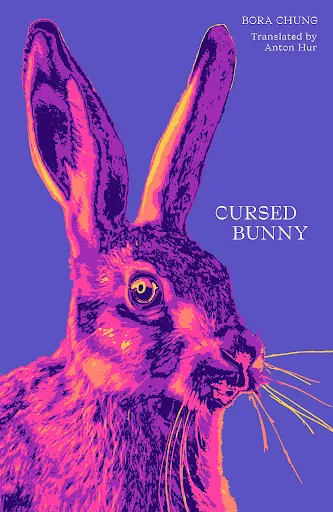Monsters, manipulation, money: Cursed Bunny's visceral horror is rooted in reality
Translated into English from Korean by translator Anton Hur, ‘Cursed Bunny’ is a collection of 10 genre-defying short stories, effortlessly jumping from horror to science fiction and back to horror in a prose that is as arresting as it is thought-provoking.
What if there was a humanoid made of waste picked from a commode?
What if a family making cursed artefacts for a living got rubbed the wrong way?
What if robot servants created to serve humans turned on them instead?
These are the questions that lay the foundation for the exploration of the primal fear in Cursed Bunny, which was shortlisted for the International Booker Prize 2022 earlier this year.
It is a potpourri of tales from every genre, described by the author Bora Chung as being ‘...along the lines of horror and speculative fiction,’ according to a video posted by the Booker Foundation.

From human meatballs to human skin veils: Sayaka Murata’s Life Ceremony forces you to question your reality
Reading ‘Cursed Bunny’ is a refreshing experience. With a very unapologetic approach to horror, the author takes zero pains to explain any of the phenomena that we read about, bar a couple, and that too in vague terms—setting itself apart from the usual entries in the genre. The stories all seem to point to one thing: sometimes, the monster under the bed isn’t a traumatic memory or a reflection of the protagonist’s troubled past; sometimes it’s just that—a monster.
This lack of explanation, which, rather than detracting the reader from enjoying the stories, adds to the experience. The book embraces simplicity and runs with it; the uncertainty behind the monsters augments the already existing terror weaved into their tales.
Perhaps what is more fascinating is the way Chung narrates the stories as a matter-of-fact, almost emotionless. Ghostly apparitions and emotionally manipulative cyborgs are introduced to the reader as if they are perfectly normal, and indeed they may well be in the eyes of the characters that inhabit these stories.
This may be one of the reasons why Cursed Bunny feels so grounded yet oddly fairytale-like. Caught in between the fiercely imaginative prose and the monotonous voice of the narrators, the reader is suspended in this grey area that is at once both detached and deeply immersive.
Grandfather used to say, “When we make our cursed fetishes, it’s important that they’re pretty.”
The opening line of the titular short story is just cryptic enough to reel you in. It leaves one curious; who is this Grandfather? What are these ‘cursed fetishes’? And why is it important that they be pretty?
All these questions and more are answered as the words that follow slowly unravel a short but enthralling story. Chung takes you through a tale of betrayal, naivete, and corporate greed set in the backdrop of war, before finally ending with a twist that though not groundbreaking, is still macabre enough to make the unsuspecting reader do a double take.
Other stories follow a similar pattern. Starting at a point where the protagonists find themselves in the middle of a strange situation, the stories weave through events in the past that led up to that point in time, and finally, end with a denouement that has just enough of a plot twist to make one sit up straight and think about what they just read.
Sometimes the monotony of the narrating voice does get in the way, like when a cold-blooded murder is recounted quite calmly. It works for the most part but in certain stories, the dramatic effect falls a bit flat as a result.
Cursed Bunny doesn’t hold any profound truths. It’s not going to have you reconsider life or the people in it, but it will have you looking at ordinary things differently; for all its horror and surrealism, the book as a whole is rooted in the fears and pressures of everyday life.
All in all, the author does an incredible job of letting the stories speak for themselves, using horror to address the unaddressed horrors in society caused by patriarchy and capitalism, and making for a collection of tales that is from the outset thoroughly cursed, scary, and most importantly, enjoyable to read.
Solid four out of five.
Edited by Kanishk Singh







